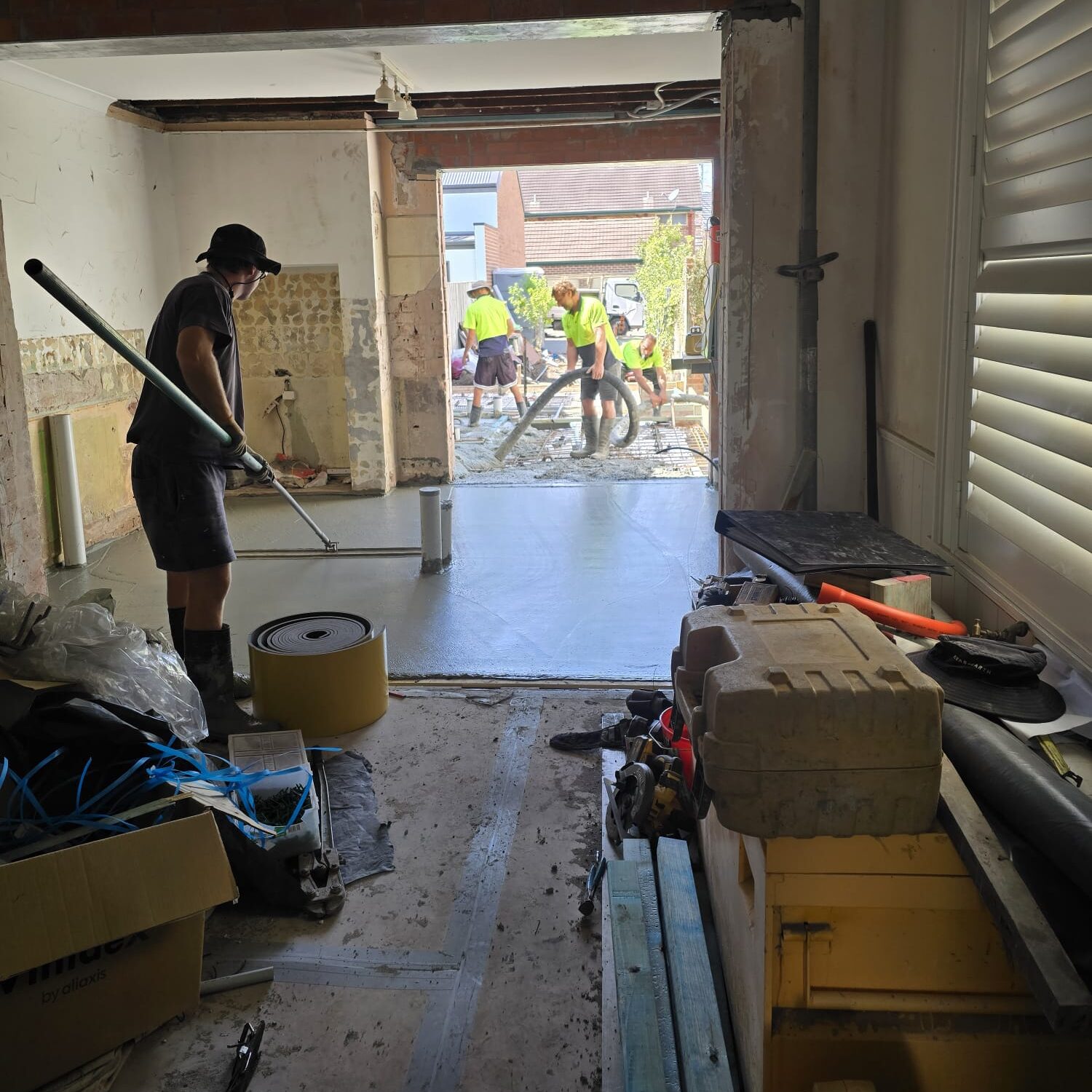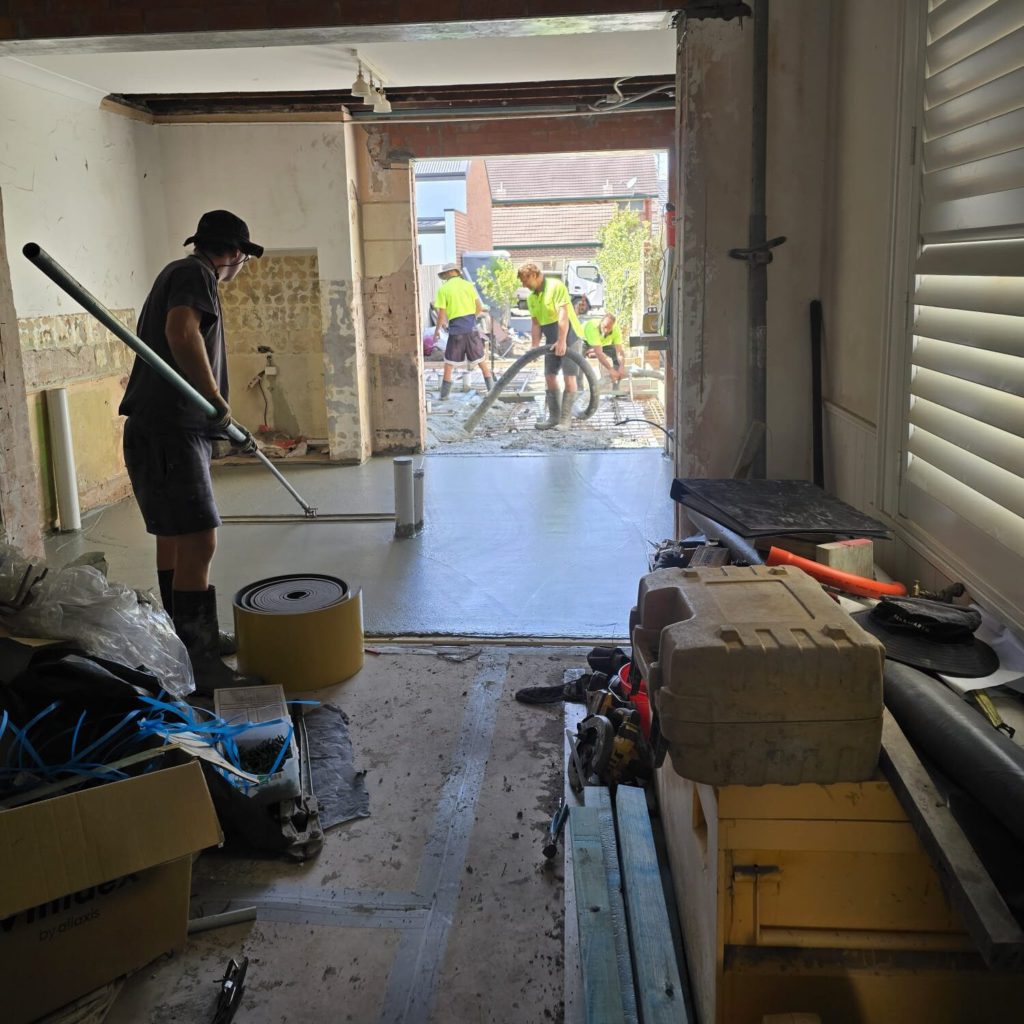Are you in the midst of planning a shed slab installation, creating a new driveway, or laying the foundations for a home extension? If so, you may have come across the term “cement pump.” But what exactly does this term imply, and how crucial is it for your construction project?
This detailed guide offers extensive insights into the process of hiring a cement pump and illustrates how leveraging one can greatly improve your next concrete pour by streamlining the operation, ensuring a cleaner workspace, and enhancing overall efficiency.

Understanding the Distinction: Cement Pump Versus Concrete Pump
In the realm of construction, there is a prevalent misunderstanding surrounding the terminology, frequently leading to the use of the term cement when one actually means concrete. As a result, when people refer to a cement pump, they are typically alluding to a concrete pump. This advanced machinery is meticulously designed to transport mixed concrete from the delivery vehicle directly to the precise location required for your project.
Concrete pumps are exceptionally advantageous in a multitude of scenarios, such as:
- Delivering concrete to complex locations, including behind a structure or within cramped areas
- Eliminating the requirement for wheelbarrows, thus reducing arduous manual labour
- Ensuring a tidier and more effective job site
It is important to note that there is not an exclusive machine that solely pumps cement, as cement is merely one ingredient within the broader composition of concrete. Consequently, when planning to pour a slab or establish footings, what you genuinely need is a concrete pump. For residential projects, a line pump is the most commonly utilised option.
Crucial Scenarios for Utilising a Cement Pump (Concrete Pump)
If you find yourself in any of the following situations, it becomes imperative to consider employing a cement pump (or more accurately, a concrete pump) to conserve significant time, effort, and minimise mess:
- Pouring a shed slab in your garden
- Replacing an existing driveway that has deteriorated over time
- Installing footings for a deck or a granny flat
- Working in tight access or confined spaces where manoeuvrability is restricted
In these circumstances, the use of a concrete pump will undoubtedly streamline your undertaking. By opting for a pump rather than relying on wheelbarrows or attempting to pour directly from the truck, the concrete can be delivered precisely where it is needed, even if that location is over 30 metres away from the road.
Key Steps to Successfully Hire a Cement Pump (Concrete Pump)
Securing a concrete pump can be quite straightforward, yet ensuring you make the most informed choice can help you sidestep unnecessary complications. Here’s a simple yet effective guide to aid you:
1. Define the Specifics of Your Pouring Project
Are you pouring a slab, establishing footings, or constructing pathways? Gaining a clear understanding of your project particulars will facilitate the selection of the correct pump size and configuration tailored specifically to your requirements.
2. Accurately Determine Your Required Pour Volume
Calculate your required volume in cubic metres using the formula (Length × Width × Depth in metres). If you are uncertain about how to carry out these calculations, our team is readily available to assist you and ensure you account for any potential overrun. Here is a helpful guide on how to calculate the amount of concrete you will need.
3. Assess Your Access Points for Concrete Delivery
Can we reach the site with a hose line? Is there adequate space for a concrete truck? It is essential to communicate any access limitations to us so we can plan effectively, ensuring seamless operations and preventing delays.
4. Schedule the Pump (Including Concrete Supply and Labour Services)
At Hunter Concrete Pump Hire, we provide comprehensive support, which encompasses coordinating the concrete supply, labour, and the pump — all within one seamless package, significantly enhancing your overall experience.
Your Local Experts for Reliable, Transparent, and Efficient Concrete Pumping Solutions
If you are located in Newcastle, Maitland, or the Hunter Valley, our team stands as your reliable local choice for professional and clean concrete pumping solutions. We provide mini pumps and line pumps specifically tailored for residential projects. Our pricing structure is clear and straightforward, offering options for flat rates or hourly rates, ensuring you are fully informed about what to expect.
Whether this is your first project or you are a seasoned professional, we will guide you throughout the entire process, ensuring that everything is executed correctly and efficiently from beginning to end.
Addressing Common Queries Regarding Concrete Pumps
Is it termed a cement pump or a concrete pump?
While many individuals casually refer to it as a “cement pump,” the accurate terminology is “concrete pump.” Cement is merely one element of the comprehensive mix utilised in construction.
What are the expenses related to hiring a cement pump?
The costs vary based on the specifics of your project. At Hunter Concrete Pump Hire, our flat rate commences at $800, or you may prefer to book on an hourly basis. We will help you evaluate the best option that aligns with your particular job requirements.
Can I rent a pump without ordering concrete?
Absolutely. However, we can also assist in supplying the concrete mix if you prefer to have a single point of contact for your entire project.
Need Assistance with Your Concrete Project?
Whether you are gearing up for a slab pour, a shed installation, or laying footings for a new build — we are here to assist you in identifying the appropriate pump, calculating the necessary amount of concrete, and overseeing the entire pouring process to ensure everything proceeds without a hitch.
The Article: Cement Pump: Understanding Its Use and Importance first appeared on https://writebuff.com
The Article Cement Pump: Key Insights on Its Use and Significance Was Found On https://limitsofstrategy.com


